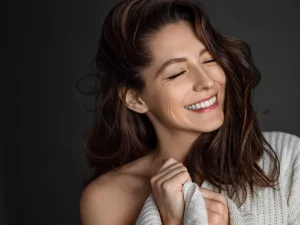The beauty industry is undergoing a transformative shift, prompting a crucial reevaluation of its norms. Outdated beauty standards have long marginalized many, but a wave of change led by pioneering businesswomen is reshaping the narrative. These trailblazers are championing inclusivity in modern beauty standards and individuality in modern salons, aiming to revolutionize the industry. The pressing question remains: How can we ensure that this move towards inclusivity is not just a fleeting trend?
Key Takeaways
- Embracing inclusive beauty standards in salon culture promotes a culture of belonging, celebrating individuality and diversity among clients and employees.
- Businesswomen in the beauty industry can lead the change by redefining traditional beauty standards, actively embracing variety, and promoting inclusivity.
- Inclusive beauty standards increase customer loyalty, expand market reach, and enhance brand reputation, leading to financial benefits and improved employee morale.
- Salon culture shift towards inclusivity involves recognizing beauty in diverse forms, ages, abilities, and identities, promoting empathy and understanding.
- By embracing inclusive beauty standards, beauty professionals can become agents of change, influencing the industry to reflect modern society’s richness and breaking down barriers.
The Beauty Industry’s Exclusion Problem
The beauty industry’s historical lack of diversity has led to a widespread culture of exclusion, where certain skin tones, body types, and abilities have been systematically marginalized, perpetuating a narrow and unrealistic definition of beauty that fails to reflect the rich tapestry of human experience. This exclusionary culture has far-reaching consequences, impacting self-esteem, confidence, and overall well-being.
Inclusivity in Modern Beauty Standards
One significant step towards a more varied and accepting beauty scenery is the adoption of inclusive beauty standards that celebrate individuality and reject broad, outdated definitions of beauty. This shift acknowledges that beauty comes in diverse forms, ages, abilities, and identities, promoting a culture of empathy and understanding.
Salon Culture Shift: Embracing Diversity
Every salon, regardless of size or specialty, has a unique opportunity to redefine traditional beauty standards by actively embracing variety and promoting inclusivity in modern beauty standards. By doing so, salons can nurture a culture of belonging, where diverse clients feel seen, heard, and valued. This shift empowers businesswomen to lead the way in redefining beauty standards, celebrating individuality and promoting a more inclusive beauty industry.
Empowering Change: A Call to Action
Many beauty professionals are now positioned to become agents for change, utilizing their influence to create a more inclusive and diverse beauty industry that truly reflects the richness of modern society. By embracing inclusivity in modern beauty standards, we can break down barriers and celebrate individuality, nurturing a culture of belonging and empowerment for all.

Frequently Asked Questions
How Do I Create a More Inclusive Beauty Product Line for Diverse Skin Tones?
To create a more inclusive beauty product line for diverse skin tones, start by conducting market research to understand the needs of underrepresented groups, then formulate products with a broad shade range and adapt to customer feedback.
What Are Some Inclusive Marketing Strategies for Beauty Businesses?
To develop inclusive marketing strategies for beauty businesses, focus on diversity-driven campaigns, inclusive language, and representation of diverse skin tones and abilities, ensuring all customers feel seen and valued in the beauty industry.
How Can I Train My Salon Staff to Cater to Diverse Hair Textures?
To train salon staff to cater to diverse hair textures, and provide thorough education on various hair types, including curl patterns, porosity, and styling techniques, ensuring a culturally sensitive and inclusive approach to hair care.
What Are the Benefits of Offering Inclusive Beauty Services for People With Disabilities?
Providing inclusive beauty services for people with disabilities creates a welcoming environment, enhances accessibility, and encourages social responsibility, ultimately improving customer satisfaction, loyalty, and business reputation.
Can I Use Social Media to Promote Inclusive Beauty Standards in My Salon?
Indeed, social media can be a powerful tool to promote inclusive beauty standards in your salon. Share diverse models, client testimonials, and behind-the-scenes content to showcase your commitment to inclusivity, nurturing a sense of belonging among clients.’
Conclusion
In summary, the beauty industry’s shift towards inclusivity is essential in redefining beauty norms. By embracing diversity and individuality, modern salons create spaces where all individuals feel valued and beautiful. This cultural shift not only reflects modern society’s richness but also empowers businesswomen to lead the charge in promoting inclusivity. As agents of change, beauty professionals have a responsibility to create a more inclusive and empowering beauty industry, celebrating the beauty of all forms, ages, abilities, and identities.
You May Also Like: